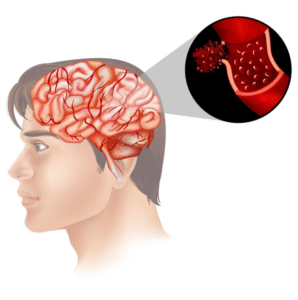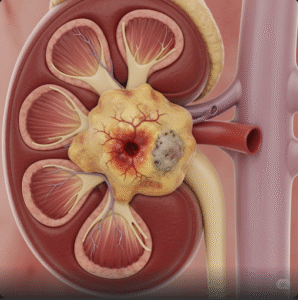Overview
Intoxication is a medical condition resulting from exposure to toxic substances—chemicals, drugs, or natural poisons—that overwhelm the body’s ability to metabolize or eliminate them, leading to harmful physiological effects. It can affect virtually any organ system depending on the toxin involved, and its severity ranges from mild discomfort to fatal outcomes. Intoxication may be acute, developing rapidly after a large exposure, or chronic, caused by repeated low-level exposure over time.
In Korea, the healthcare system is highly developed with specialized toxicology units, emergency care centers, and poison control facilities that provide expert, timely interventions. Advances in diagnostics, treatment protocols, and public health initiatives have significantly improved the outcomes for patients suffering from various forms of intoxication.
What is Intoxication?
Intoxication occurs when a toxic agent enters the body and interferes with normal cellular functions or biochemical pathways. These toxic agents can be:
- Pharmaceuticals: Including overdoses of prescription medications (opioids, benzodiazepines, antidepressants), illicit drugs (methamphetamine, heroin), or alcohol.
- Chemical poisons: Such as pesticides (organophosphates), industrial chemicals, household cleaners (bleach, detergents), or heavy metals (lead, mercury).
- Environmental toxins: Carbon monoxide from incomplete combustion, or natural toxins like snake venom or plant alkaloids.
- Biological toxins: Produced by bacteria (botulinum toxin) or fungi (mycotoxins).
Exposure routes include ingestion, inhalation, dermal absorption, or injection. Once inside the body, toxins may disrupt enzyme function, damage organ systems, or alter neurotransmission.
Symptoms
Symptoms of intoxication depend on the substance, dose, exposure route, and individual susceptibility. Common clinical manifestations include:
- Central Nervous System (CNS): Confusion, dizziness, agitation, hallucinations, seizures, coma.
- Respiratory system: Difficulty breathing, respiratory depression or arrest.
- Cardiovascular system: Arrhythmias, hypotension or hypertension, cardiac arrest.
- Gastrointestinal system: Nausea, vomiting, abdominal pain, diarrhea.
- Musculoskeletal system: Muscle weakness, tremors, rigidity.
- Skin: Sweating, flushing, pallor, cyanosis.
- Metabolic disturbances: Acidosis, electrolyte imbalance, hypoglycemia or hyperglycemia.
Causes
The causes of intoxication are broad and can be classified by type:
- Drug overdoses: Accidental or intentional ingestion of excessive doses of medications or recreational drugs.
- Chemical poisonings: Exposure to toxic chemicals in agricultural, industrial, or household settings.
- Environmental exposures: Carbon monoxide poisoning from faulty heating systems, or exposure to toxic gases.
- Foodborne toxins: Such as botulism caused by improperly canned food.
- Natural toxins: Venoms from snakes, spiders, or marine animals.
- Chronic exposure: Prolonged contact with low levels of toxins like heavy metals leading to cumulative toxicity.
Risk Factors
Certain factors increase the risk of intoxication:
- Age extremes: Children are more prone to accidental ingestion; elderly may have altered metabolism.
- Mental health disorders: Substance abuse, depression, or suicide attempts.
- Occupational hazards: Workers in agriculture, chemical industries, or mining.
- Poor storage or labeling: Leading to accidental ingestion.
- Polypharmacy: Multiple medications increasing overdose risk.
- Lack of awareness or education: About toxic substances and their dangers.
- Chronic illnesses: That impair detoxification pathways (liver or kidney disease).
Complications
If untreated or improperly managed, intoxication can cause:
- Multi-organ failure: Liver, kidneys, lungs, or heart failure.
- Permanent neurological damage: From hypoxia or direct neurotoxicity.
- Metabolic crises: Severe acidosis, electrolyte disturbances.
- Cardiac arrhythmias or arrest: Leading to sudden death.
- Secondary infections: Due to compromised immunity.
- Death: Especially with potent toxins or delayed treatment.
Prevention
Effective prevention strategies include:
- Safe storage: Locked cabinets for medications and chemicals.
- Clear labeling: Proper identification of hazardous substances.
- Public education: Awareness campaigns about risks and first aid.
- Use of protective gear: For workers handling toxic materials.
- Childproof packaging: For pharmaceuticals and household products.
- Routine monitoring: For occupational exposures.
- Mental health support: To reduce intentional poisonings.
- Regulations and policies: Controlling sale and use of toxic substances.
Treatment Options in Korea
Korea offers state-of-the-art care for intoxication cases, integrating emergency medicine, toxicology, and intensive care:
- Emergency Stabilization:
- Airway management, oxygen supplementation, and mechanical ventilation for respiratory compromise.
- Cardiovascular support with fluids, vasopressors, and cardiac monitoring.
- Decontamination Methods:
- Activated charcoal: Administered orally to adsorb many ingested toxins.
- Gastric lavage: Performed in select cases soon after ingestion.
- Whole bowel irrigation: To flush out sustained-release or heavy metals.
- Dermal decontamination: Washing skin thoroughly if topical exposure occurs.
- Antidotes:
- Specific antidotes are available in Korean hospitals for many toxins:
- Naloxone: For opioid overdose.
- Atropine and pralidoxime: For organophosphate poisoning.
- N-acetylcysteine: For acetaminophen toxicity.
- Vitamin K: For anticoagulant poisoning.
- Specific antidotes are available in Korean hospitals for many toxins:
- Supportive and Symptomatic Care:
- Management of seizures, arrhythmias, acid-base balance, and electrolyte correction.
- Renal replacement therapy (dialysis) for toxins cleared by kidneys.
- Advanced Diagnostics:
- Blood and urine toxicology screens, electrocardiograms, imaging studies to assess organ damage.
- Point-of-care testing facilitates rapid decision-making.
- Intensive Care and Monitoring:
- Severe intoxication cases are managed in intensive care units with continuous monitoring and life support.
- Mental Health and Rehabilitation:
- Psychiatric assessment and counseling for patients with intentional intoxication.
- Addiction treatment services integrated for substance abuse cases.
- Poison Control and Consultation:
- Korea has regional poison control centers providing 24/7 expert guidance to healthcare professionals and the public.
- Research and Training:
- Korean institutions participate in research to improve toxin detection, antidote development, and treatment protocols.













